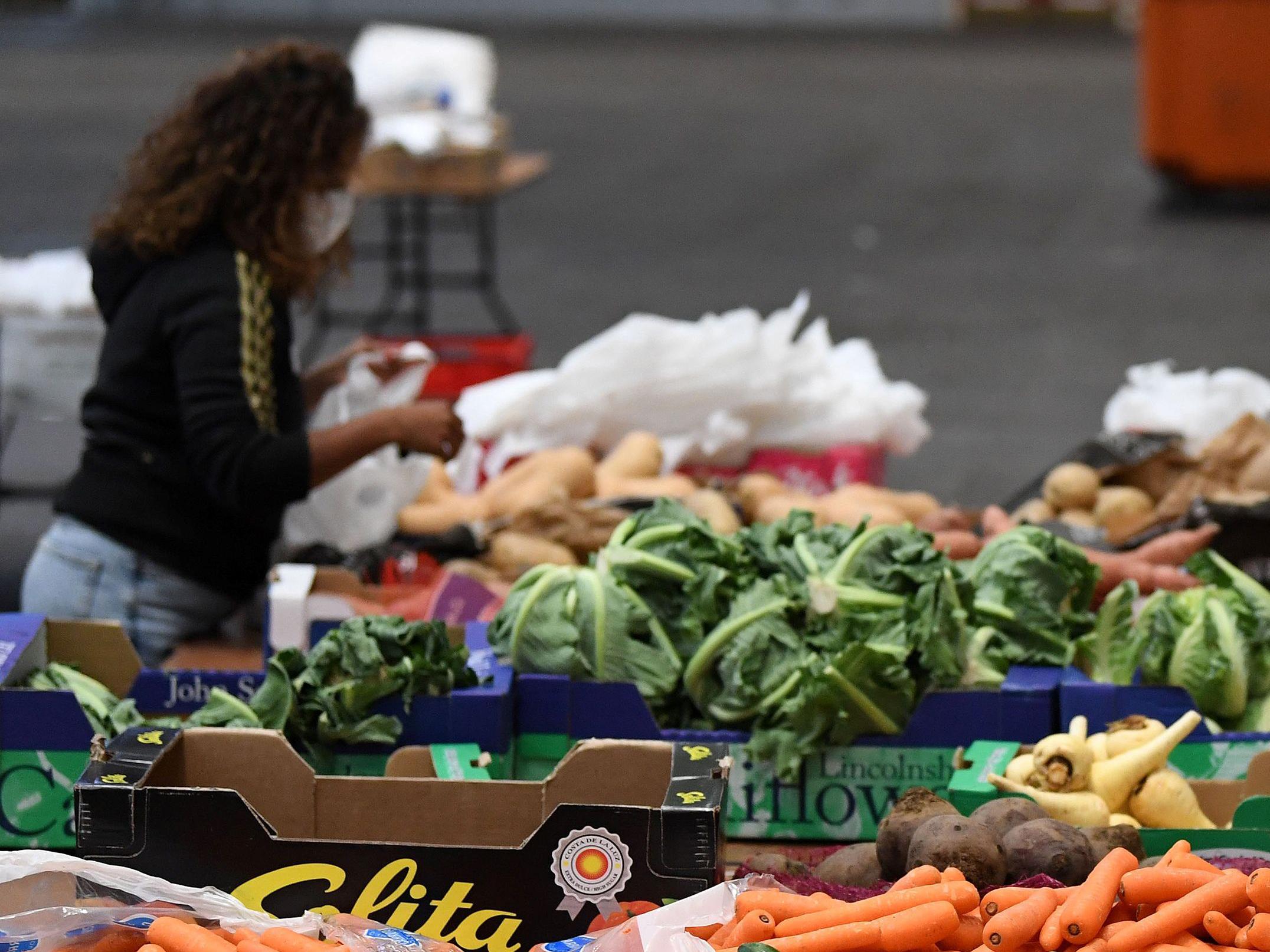The least Britain can do during the pandemic is feed the children who have been plunged into poverty
Editorial: New data shows that young people are relying increasingly on food banks

Children seem to be much less directly affected by Covid-19. Indirectly, however, it is hitting them among the hardest.
Nowhere is this more apparent than in the use of food banks. As we report today, there has been a huge increase in usage in recent weeks: 59 per cent from February to March, an increase 17 times higher than the same period last year. Children, it appears, are particularly in need of this emergency support, with a 122 per cent increase in emergency food parcels being given out to children in the last two weeks of March, compared with the same period in 2019.
The research, published by the Trussell Trust and the Independent Food Aid Network, suggests that the economic upheaval of coronavirus has left many families in food poverty. Charitable appeals such as The Independent’s Help The Hungry campaign and the work of food charities such as The Felix Project have helped, but they cannot cover every shortcoming in the social security system.
The Department for Work and Pensions has found it impossible to keep up with the flood of new universal credit claimants, and there are so many delays that some families have to go without or self-ration limited supplies of food. Some are having to wait weeks for their entitlements, and a swathe of British society that has never before claimed for anything is coming face to face with Britain’s mean welfare state.
There is not, however, a general shortage of food in Britain. The supply chains have held up remarkably well, and there is no reason for anyone to go hungry. The issue today is a more extreme and pressing version of a much older and more familiar one: food poverty.
In such circumstances, the country’s food banks need all the help they can get – whether this is from charitable donations, from the big supermarket chains, from the food giants and, in the current emergency, from the state. The authorities could do more to speed up and increase benefit payments.
In this crisis, then, children are at obvious risk from food poverty, but it does not end there. Deprived children are suffering more from the closure of the nurseries and schools, despite efforts to protect them; they are at increased risk of abuse at home; and social distancing means that they have virtually no access to outdoor space.
There is only so much behavioural and educational development that can be caught up on once things return to normal; the life chances of many will be permanently scarred. Schools may need to be closed for even longer in order to control the spread of the disease. In the meantime, the least society can do for its children is feed them.
Join our commenting forum
Join thought-provoking conversations, follow other Independent readers and see their replies
Comments